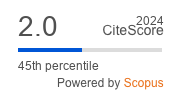Co-creating an idea lab: lessons learned from a longitudinal case study
DOI :
https://doi.org/10.23726/cij.2018.743Mots-clés :
Creative space, idea lab, longitudinal case study, co-creation, cultural probes, focus group workshop, requirements analysis, visual canvasRésumé
This article presents a longitudinal case study of the development process of an idea lab—from initial planning to final implementation and usage. The research approach comprised various methods, including a user study with cultural probes and a visual canvas, a focus group co-creation workshop, and a follow-up evaluation, two years after the space’s implementation. We identified 15 relevant themes and 39 spatial characteristics that constitute the individual users’ preferences, as well as several insights from a corporate point of view. Our gained insights on the role of the physical workspace extend the current research on idea labs. Furthermore, our findings corroborate the suggestions from related literature in terms of an idea lab’s capability to facilitate external input, experimentation, and employees’ autonomy. The presented co-creation approach and the developed spatial recommendations can be adapted for other contexts and act as guidelines for others who want to develop creative spaces.
Téléchargements
Publiée
Comment citer
Numéro
Rubrique
Licence
Authors who publish with this journal agree to the following terms:
- Authors retain copyright and grant the journal right of first publication with the work simultaneously licensed under a Creative Commons Attribution License that allows others to share the work with an acknowledgement of the work's authorship and initial publication in this journal.
- Authors are able to enter into separate, additional contractual arrangements for the non-exclusive distribution of the journal's published version of the work (e.g., post it to an institutional repository or publish it in a book), with an acknowledgement of its initial publication in this journal.
- Authors are permitted and encouraged to post their work online (e.g., in institutional repositories or on their website) prior to and during the submission process, as it can lead to productive exchanges, as well as earlier and greater citation of published work (See The Effect of Open Access).


